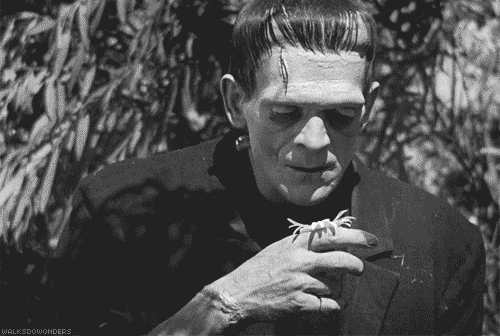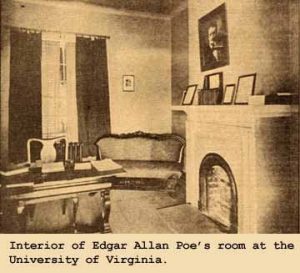The Castle of Otranto (1764)- Horace Walpole
Gothic Fiction
Gothic Fiction is a genre which gives the reader a sense of terror or horror. It is presented in a way that causes a state of pleasant terror/horror. Horace Walpole wrote the first Gothic Fiction novel in 1764, called ‘The Castle of Otranto’. It was such a new concept that the readers believed it was a real story. This story created the outline or specific characteristics that a Gothic story needed to have, which includes:
- A damsel in distress
- Castles or old, dark places
- Supernatural creatures
- Eerie sounds
- Suspense and tension…. and much more
This is an analysis of one section of the novel by Horace Walpole, in which a female protagonist is trapped in the subterranean region of a castle, trying to escape from ‘Manfred’, through a trap door which she cannot locate.

The key Gothic features seen in this section are:
Woman in distress
Throughout this passage, the protagonist, who is a woman, is shown as being in extreme concern and distress as she tries to escape ‘Manfred’. In the beginning of the passage, it is hinted that she is trying to escape someone that is pursuing her and is a symbol of female vulnerability with the idea of being a ‘damsel in distress’. Walpole used women in distress to help appeal to the reader’s emotions and to make them feel pity towards the female characters who are often left alone. Another key feature of this character is that we do not learn her name, therefore showing how insignificant she is to the author and story. The idea of being a ‘damsel in distress’ can be seen in the following examples. ‘Her dread of Manfred outweighed every other terror’ and ‘Words cannot paint the horror of the princesses situation.’ These lines show how she is powerless and in need for someone to rescue her which occurs later, when she runs into a male servant who she pleads to help her escape through the trap door.
Dimly lit/gloomy settings
Present throughout this passage, there is a lingering feeling of uncertainty due to lack of light. Darkness is often associated with evil and fear, therefore it brings up rash feelings that someone is creeping around you, leaving a feeling of vulnerability and paranoia. Since lack of light prevents you from being properly aware of your surroundings, the reader (and protagonist) is left uncomfortable with the idea that someone is watching you as darkness leaves you, in a way, blind. This idea is shown through the following extracts; ‘But a sudden gust of wind that met her at the door extinguished her lamp and left her in total darkness’ and ‘some stone steps descending into a vault totally dark.’ The idea of not being able to see around and being unaware of your surroundings leaves a strong sense of terror, as you can visualize the protagonist walking in a cold, pitch darkness and not being able to to see if the person she is running from is in reality waiting before her, or if there is another danger lurking.
Sights, moans, howls, eerie sounds
Another method of creating suspense and fear in the reader is by setting the scene in a deeper way, with unknown voices and sounds. When one cannot see where the noises are coming from, it leaves a feeling of curiosity and dread as you want to know what is happening. These sounds can set the mood of the passage, and depending on the location, can deepen or lessen the level of fear. In the text, it is said ‘she thought she heard the step of some person’ and ‘sudden noise of voices that seems approaching’. Both of these want to make the reader keep looking over their shoulders, and challenge every sound they hear as a way of self-protection, as you when hear a sound that you are not familiar with, it can make you feel tense and feel like you need to escape.
Terror or Horror?
The story ‘The Castle of Otranto’ is a terror story, as it contains certain characteristics that differentiate it from horror. Terror stories suggest what will happen, gives a sense of uncertainty, and it depends on the reader’s imagination. The story eluded explaining exactly what was happening, as the lady was trying to escape from ‘Manfred’, and through the trap door. It creates a sense of uncertainty (which is another feature of a terror story) since it leaves you unsure if the protagonist is going to escape safely or if she is going to get caught from the person or monster she is running from. Terror stories depend on the reader’s imagination, therefore it depends on how you are imagining the story, whether you find it scary or not. Different people may visualize or immerse themselves into the storyline differently, thus it is entirely up to the reader if this passage from ‘The Castle of Otranto’ can terrify them or not.


